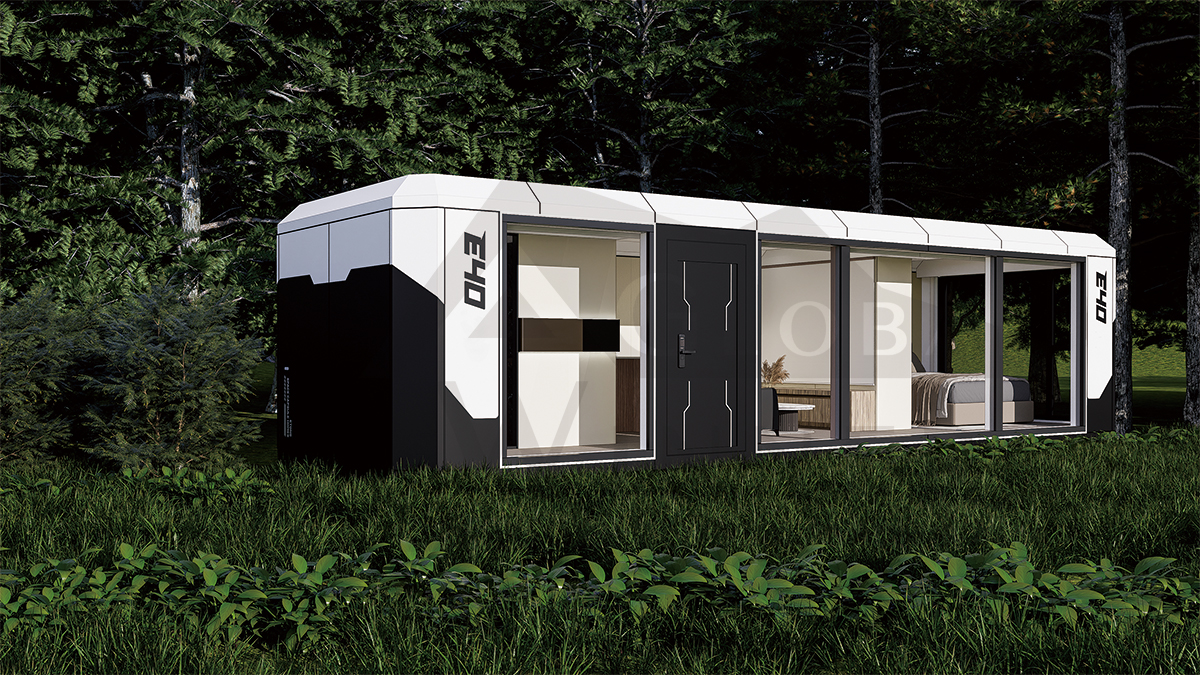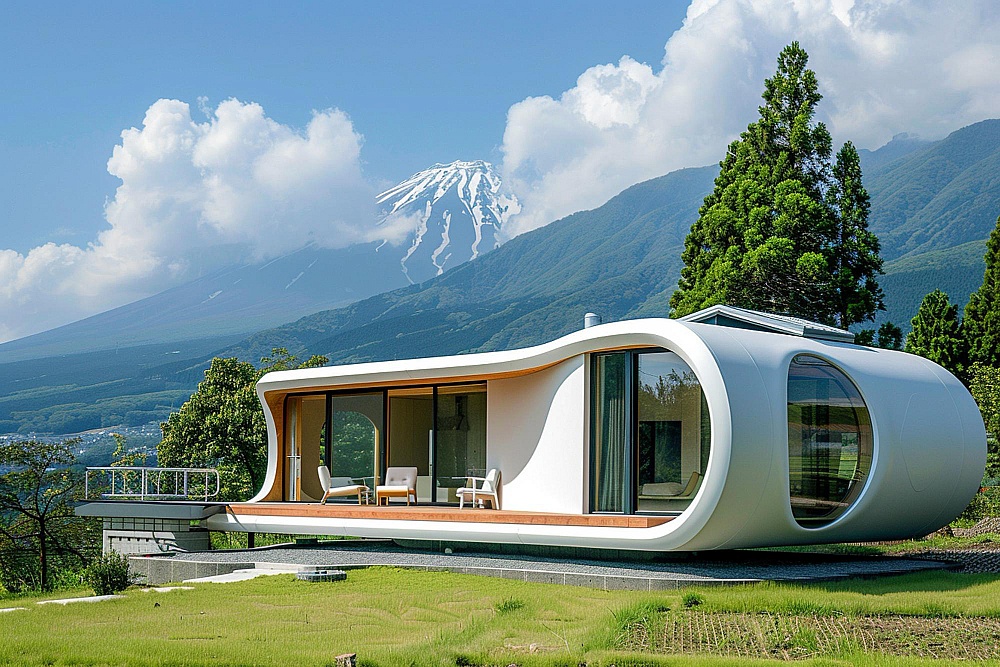Why Modular Homes Are the Future of Lasting Living
Modular homes are significantly recognized as a critical service for sustainable living, offering a blend of effectiveness, cost-effectiveness, and ecological advantages. Their building in regulated environments substantially reduces waste and improves accuracy, while the capacity for including advanced energy-efficient systems places them as a forward-thinking choice in real estate. The versatility of modular styles enables for the integration of lasting technologies and materials tailored to specific needs. As we browse the difficulties of urbanization and ecological sustainability, one must consider just how these homes might redefine our technique to living rooms.
Environmental Advantages of Modular Homes
The ecological benefits of modular homes stand for a substantial action towards sustainable living. These homes are constructed in regulated manufacturing facility setups, which significantly lowers waste created during the building process. By maximizing products and reducing excess, modular construction contributes to a much more reliable use resources compared to conventional building techniques.
Furthermore, modular homes are typically designed with energy efficiency in mind. Several include sophisticated insulation techniques, energy-efficient home windows, and lasting materials, adding to reduced power intake. This can result in minimized greenhouse gas exhausts over the lifespan of the home, enhancing its total environmental profile.
The capability to transportation and assemble modular components on-site likewise reduces the carbon footprint related to construction logistics. Furthermore, many modular homes are developed to be easily upgradeable and adaptable, enabling home owners to apply sustainable innovations, such as photovoltaic panels and energy-efficient heater, gradually.
Inevitably, the environmental benefits of modular homes not just advertise lasting living but likewise urge an even more accountable technique to housing growth, lining up with international initiatives to fight climate modification and protect natural resources for future generations.
Cost-Effectiveness and Price
Structure a home frequently represents one of the largest economic investments people make in their life time, and modular homes supply an engaging option for those looking for cost-effectiveness and affordability. One of the main benefits of modular homes is their lower building and construction prices compared to standard site-built homes. The structured production procedure permits for substantial savings on labor and materials, which translates to decrease costs for consumers.
Furthermore, modular homes generally have shorter building timelines. This not only lowers expenditures associated to funding and insurance policy however additionally reduces the dangers linked with rising cost of living and fluctuating market problems. Lots of customers find that modular homes can be personalized to fit their budgets without giving up high quality or style.
Moreover, energy efficiency is commonly built into the style of modular homes, leading to minimized energy costs over time. Many suppliers prioritize sustainable materials and practices, additionally boosting the lasting financial stability of these homes. Generally, the combination of initial expense savings, fast building and construction, and recurring power efficiency makes modular homes an attractive option for those wanting to buy lasting living without breaking the financial institution.
Effectiveness in Building
Modular homes not just provide economic benefits however additionally master building performance. The modular building procedure includes the simultaneous construction of components in a factory setup while website preparation occurs concurrently. This identical approach significantly lowers the overall timeline from fertilization to completion, typically reducing construction time by up to half contrasted to standard methods.
Additionally, factory-controlled settings boost top quality assurance. By making use of accuracy production methods, modular homes are developed to specific specifications, reducing waste and errors. This uniformity not just causes a higher top quality item yet additionally adds to lasting techniques by minimizing material waste during construction.
In addition, the use of contemporary technology and automation in the manufacturing procedure enables quicker setting up and reduced labor prices. When the modules are delivered to the site, they can be efficiently set up, additionally accelerating the timeline. This structured process is not only beneficial for builders yet additionally reduces interruptions to the surrounding setting during construction.
Customization and Layout Adaptability
An impressive variety of modification alternatives differentiates modular homes, allowing property owners to tailor their living spaces to meet certain demands and preferences. This style flexibility is a characteristic of modular construction, enabling customers to choose every little thing from flooring strategies and room designs to fixtures and coatings. Unlike traditional homes, modular designs promote a collaborative technique where builders and designers work closely with property owners, guaranteeing that each element aligns with individual way of livings and aesthetic wishes.
Moreover, modular homes can be quickly reconfigured or increased, accommodating changing household characteristics or developing individual tastes. This adaptability not only improves the home's functionality however also adds to lasting sustainability, as homeowners can modify their spaces instead of look for new housing services.

Future Patterns in Sustainable Real Estate
Arising patterns in sustainable real estate are reshaping the landscape of property construction, stressing environment-friendly methods and cutting-edge technologies. One considerable pattern is the assimilation of smart home innovation, which enhances energy effectiveness through automated systems that optimize and monitor power consumption. This not just lowers energy prices yet likewise adds to a reduced carbon footprint.
Additionally, the usage of lasting products is becoming progressively usual. Contractors are selecting reused, locally sourced, or rapidly sustainable products, which decrease environmental influence and assistance neighborhood economic climates. Modular homes are obtaining appeal for their decreased waste throughout building and construction and their adaptability to go to this site different terrains and climates.
Another pattern is the consolidation of environment-friendly roof coverings and living wall surfaces, which improve air top quality and provide all-natural insulation. These attributes likewise advertise biodiversity in metropolitan locations.
Conclusion
In final thought, modular homes emerge as a critical option for lasting living, supplying significant environmental benefits with decreased waste and power effectiveness. As patterns in sustainable real estate advance, modular homes are poised to play a crucial duty in advertising environmentally friendly living methods for future generations.
Building a home typically represents one of the biggest economic investments people make in their life time, and modular homes offer a compelling option for those seeking cost-effectiveness and price. anonymous One of the key advantages of modular homes is their lower building and construction prices contrasted to typical site-built homes. On the whole, the mix of initial cost savings, quick building and construction, and continuous power performance makes modular homes an appealing option for those looking to spend in sustainable living without breaking the bank.
Inevitably, the customization and layout flexibility supplied by modular homes guarantee that they are not just frameworks, yet personalized refuges that mirror the one-of-a-kind identities of their owners while promoting lasting living practices.
